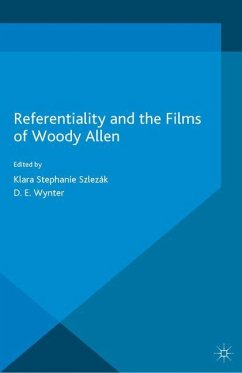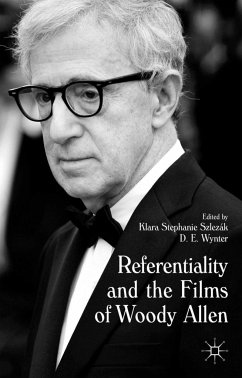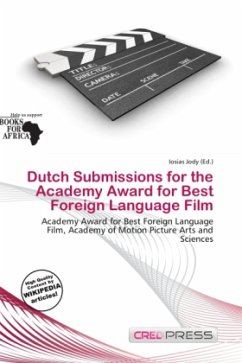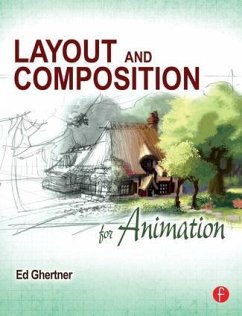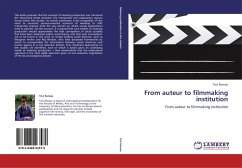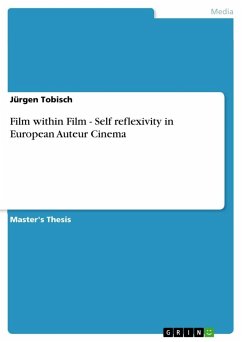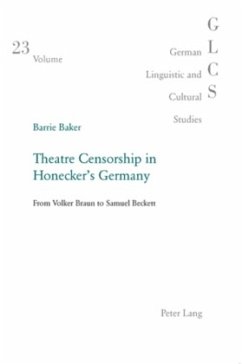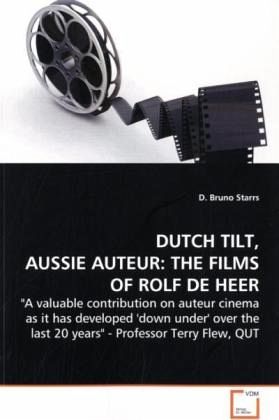
DUTCH TILT, AUSSIE AUTEUR THE FILMS OF ROLF DE HEER.
"A valuable contribution on auteur cinema as it has developed 'down under' over the last 20 years" - Professor Terry Flew, QUT
Versandkostenfrei!
Versandfertig in 6-10 Tagen
32,99 €
inkl. MwSt.

PAYBACK Punkte
16 °P sammeln!
"Dutch Tilt, Aussie Auteur: The Films of Rolf de Heer" is an auteur analysis of the twelve feature films directed (mostly written and produced) by Holland-born Australian Rolf de Heer. From the children's story about the restoration of a Tiger Moth biplane, "Tail of a Tiger" (1984), to his breakout cult sensation "Bad Boy Bubby" (1993) which "tore Venice apart," to the first Aboriginal Australian language film "Ten Canoes" (2006) which scooped the pool at the AFI awards and won the Special Jury prize at Cannes Film Festival, de Heer has been consistently unpredictable. However, Starrs' close s...
"Dutch Tilt, Aussie Auteur: The Films of Rolf de
Heer" is an auteur analysis of the twelve feature
films directed (mostly written and produced) by
Holland-born Australian Rolf de Heer. From the
children's story about the restoration of a Tiger
Moth biplane, "Tail of a Tiger" (1984), to his
breakout cult sensation "Bad Boy Bubby" (1993)
which "tore Venice apart," to the first Aboriginal
Australian language film "Ten Canoes" (2006) which
scooped the pool at the AFI awards and won the
Special Jury prize at Cannes Film Festival, de Heer
has been consistently unpredictable. However,
Starrs' close study of his work suggests that
Australia's most innovative and respected Arthouse
film-maker has a signature pre-occupation with
giving a voice to marginalized, non-hyper-masculine
protagonists. Demonstrating a propensity to write
and direct in a European-like style, de
Heer's "Dutch tilt" is very much non-mainstream
Hollywood, but is nevertheless representative of a
typically Australian world-view. "ENGAGINGLY WRITTEN
AND PERCEPTIVE ... A BLEND OF SYMPATHETIC
APPRECIATION AND INFORMED CRITICISM" - Professor
Greg Battye, the University of Canberra, Australia.
Heer" is an auteur analysis of the twelve feature
films directed (mostly written and produced) by
Holland-born Australian Rolf de Heer. From the
children's story about the restoration of a Tiger
Moth biplane, "Tail of a Tiger" (1984), to his
breakout cult sensation "Bad Boy Bubby" (1993)
which "tore Venice apart," to the first Aboriginal
Australian language film "Ten Canoes" (2006) which
scooped the pool at the AFI awards and won the
Special Jury prize at Cannes Film Festival, de Heer
has been consistently unpredictable. However,
Starrs' close study of his work suggests that
Australia's most innovative and respected Arthouse
film-maker has a signature pre-occupation with
giving a voice to marginalized, non-hyper-masculine
protagonists. Demonstrating a propensity to write
and direct in a European-like style, de
Heer's "Dutch tilt" is very much non-mainstream
Hollywood, but is nevertheless representative of a
typically Australian world-view. "ENGAGINGLY WRITTEN
AND PERCEPTIVE ... A BLEND OF SYMPATHETIC
APPRECIATION AND INFORMED CRITICISM" - Professor
Greg Battye, the University of Canberra, Australia.



